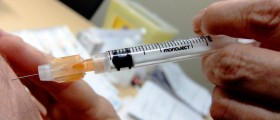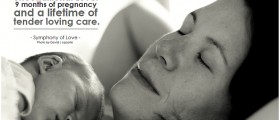Birth control means adopting certain methods, techniques, products and devices to avoid unwanted pregnancy. Sometimes birth control involves protection against sexually transmitted diseases too, like in the case of condoms, but more often it just prevents pregnancy.
Some types of birth control can only be obtained with a prescription issued by a doctor, but there are many over-the-counter options available as well. Here are some of the most popular birth control options that do not require a prescription.
Condoms
There are two types of condoms- male condom and female condom. Male condom, which is placed on the penis in order to collect the ejaculated sperm, is much more popular than the female condom, which is placed inside the vagina.
Condoms can be purchased in any drugstore, supermarket, gas station and similar stores, and are also often handed out free in clinics and community centers. They are meant for single use only, after which they are discarded.
Condoms provide protection against sexually transmitted diseases too, which makes them one of the most popular types of birth control.
Spermicide
Spermicides are products that come in form of gels, foams, creams and suppositories and their purpose is to kill the sperms after they come in contact with the vagina. Spermicides are usually used alongside condoms, to increase the protection and efficiency. If used alone, they are not very effective. Spermicides are available without a prescription in drugstores and pharmacies.
Vaginal sponge
A vaginal sponge is a soft sponge made of synthetic materials, soaked in spermicide. The sponge is supposed to be moistened before the intercourse and placed inside the vagina, in front of the cervix, and it is left there for six to eight hours after having sex.
As a barrier mechanism, vaginal sponge is similar to diaphragm, which, however, needs a prescription. Vaginal sponges were removed from the market in the United States, but it seems like they will be re-introduced soon.
“Morning after” pill
The “Morning after” pill is a form of emergency birth control. It is supposed to be taken after the intercourse has taken place without protection and when the chance of conceiving is high. It consists of two doses of hormone pills that are supposed to be taken not later than 72 hours after the intercourse.
The situations in which doctors recommend this form of birth control include rape, condom break during sex, missing at least two birth control pills and any other form of unplanned sex.

















Your thoughts on this
Loading...